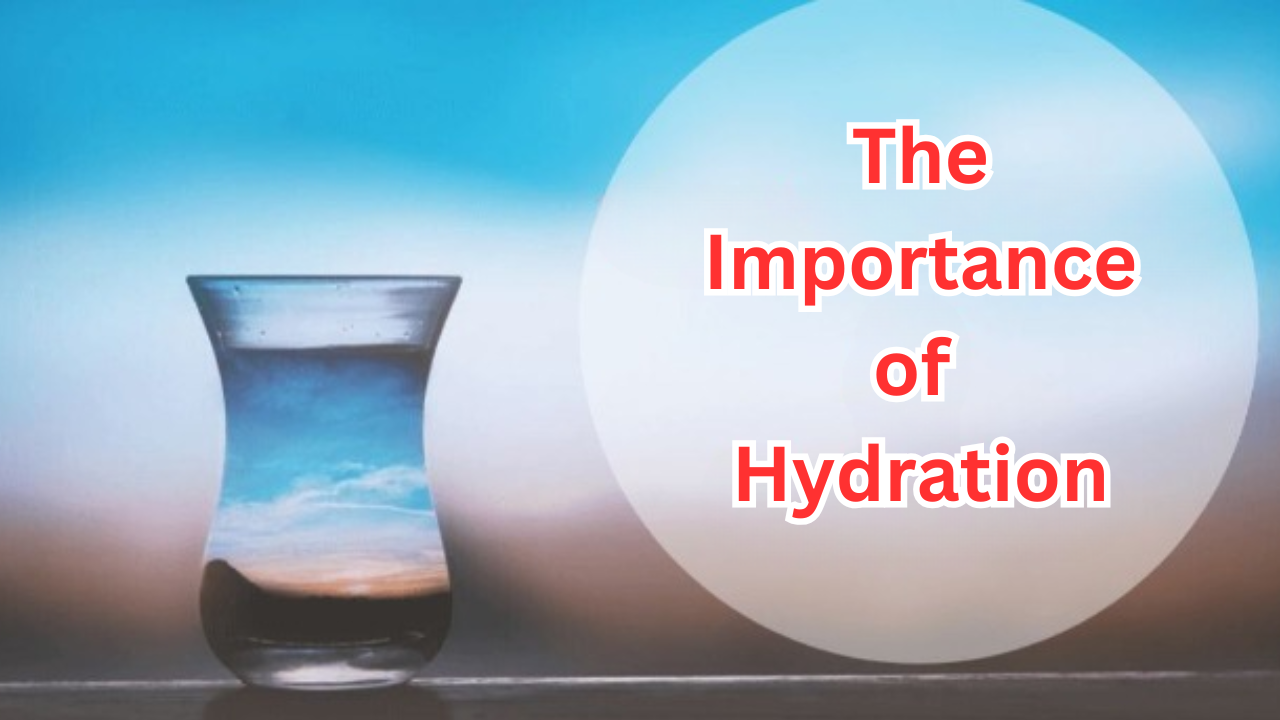Water is essential to almost every bodily function and is the essence of life. Many people don’t realize how important it is to stay hydrated for general health and well-being. Drinking enough water is essential for maintaining peak physical and mental performance whether you’re an athlete a busy professional or just going about your daily business.
In this blog, we’ll explore why hydration matters, the signs of dehydration, how much water you need, and practical tips to help you stay hydrated.
Why Is Hydration So Important?
Approximately 60% of the human body is made up of water which is essential to many physiological functions. Here is why it is so important to stay hydrated:
- Regulates Body Temperature: Water facilitates respiration and sweating which help control body temperature. Especially when exercising or in hot weather, this procedure is essential for avoiding overheating.
- Supports Digestion: Water facilitates nutrient absorption food digestion and constipation avoidance. The digestive system finds it difficult to operate efficiently when it isn’t getting enough water.
- Promotes Healthy Skin: Maintaining hydration improves elasticity lessens dryness and keeps your skin hydrated. It is a natural approach to keeping your skin looking radiant.
- Boosts Energy Levels: Fatigue and low energy can result from even mild dehydration. Maintaining adequate hydration guarantees that your cells get the nutrients and oxygen they require to keep you feeling energized.
- Improves Brain Function: Water is essential for cognitive functions like mood regulation memory and focus. Headaches and irritability can result from dehydration which can also affect concentration.
- Flushes Out Toxins: Water aids in the removal of waste and toxins through urine which supports kidney function. In order to keep the urinary tract healthy this procedure is essential.
Are You Drinking Enough Water?
Even though the body needs water many people don’t get enough of it each day. A few subtle symptoms of dehydration are as follows:
- Dry mouth or throat
- Dark yellow urine
- Fatigue or dizziness
- Difficulty concentrating
- Muscle cramps
- Dry or flaky skin
If you experience any of these symptoms, you may need to increase your water intake.
How Much Water Do You Need?
Although eight glasses or roughly two liters of water should be consumed daily hydration requirements differ depending on age weight activity level and climate. The following are some rules:
- General Recommendations
- Men: About 3.7 liters (125 ounces) per day from all beverages and foods.
- Women: About 2.7 liters (91 ounces) per day from all beverages and foods.
- Activity Levels: Drink one or two more cups of water for each hour of physical activity if you regularly work out. Think about drinking electrolyte-rich beverages during vigorous exercise to replace lost minerals.
- Climate: Sweating causes more water loss when it is hot or muggy. Prioritize staying hydrated in these situations to prevent heat-related illnesses.
- Individual Needs: Pay attention to your body. Dehydration is naturally indicated by thirst but don’t wait until you are thirsty to drink water.
What About Other Beverages?
While water is the best choice for staying hydrated, other drinks and foods contribute to your fluid intake:
- Herbal teas: Provide hydration and additional health benefits.
- Fruits and vegetables: Foods like cucumbers, watermelon, and oranges have high water content.
- Milk and juices: Offer hydration but should be consumed in moderation due to sugar content.
Alcoholic and caffeinated drinks should be avoided as they may have diuretic effects that cause further fluid loss.
Tips to Stay Hydrated:
- Start Your Day with Water: Rehydrate after sleeping and start your metabolism off right with a glass of water in the morning.
- Carry a Reusable Water Bottle: It’s simple to sip water throughout the day when you have it on hand. To keep track of your consumption, choose a bottle with measurement marks.
- Set Reminders: If you tend to forget to drink water, use apps or phone alarms to remind you to do so regularly.
- Infuse Your Water: If you find plain water dull, try adding slices of cucumber, lemon, or mint for a little taste.
- Hydrate with Meals Drinking water before and during meals helps with digestion and prevents overeating.
- Monitor Your Urine: You can quickly determine your level of hydration by looking at the color of your urine. Proper hydration is usually indicated by light yellow or clear urine.
The Risks of Dehydration:
Chronic dehydration can lead to serious health complications, including:
- Kidney stones: Insufficient water intake can lead to the formation of painful kidney stones.
- Urinary tract infections (UTIs): Dehydration increases the risk of UTIs, particularly in women.
- Heat exhaustion or heatstroke: Severe dehydration in hot weather can escalate to life-threatening conditions.
- Impaired organ function: Long-term dehydration strains organs like the heart and kidneys.
Conversely, water intoxication, often known as over-hydration, is uncommon but conceivable. It commonly happens when people drink too much water in a short length of time, diluting vital electrolytes like salt. The key is balance.
Hydration and Overall Wellness:
In addition to slake thirst staying properly hydrated is crucial for preserving both mental and physical well-being. Enough water consumption boosts vitality supports physiological processes and improves general well-being.
Conclusion:
You can make sure your body is getting the hydration it requires by adopting easy habits like carrying a water bottle eating foods high in water and paying attention to your body’s signals. Water is the simplest step to becoming healthier so choose it the next time you reach for a drink.
